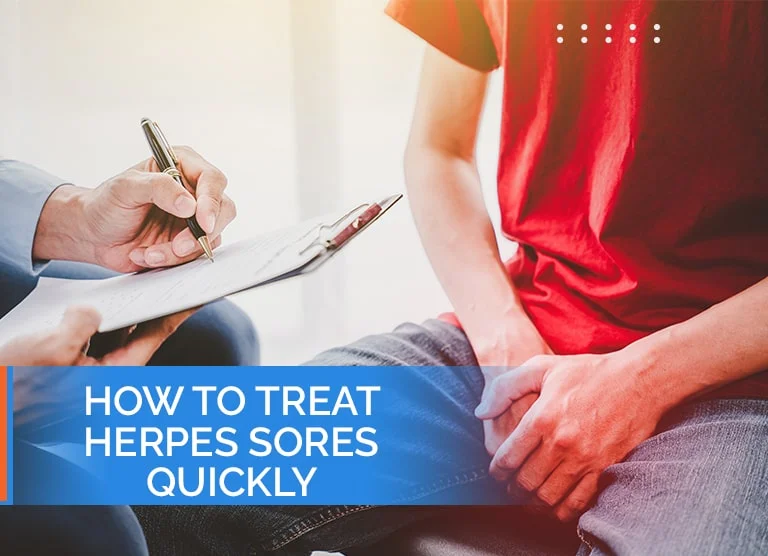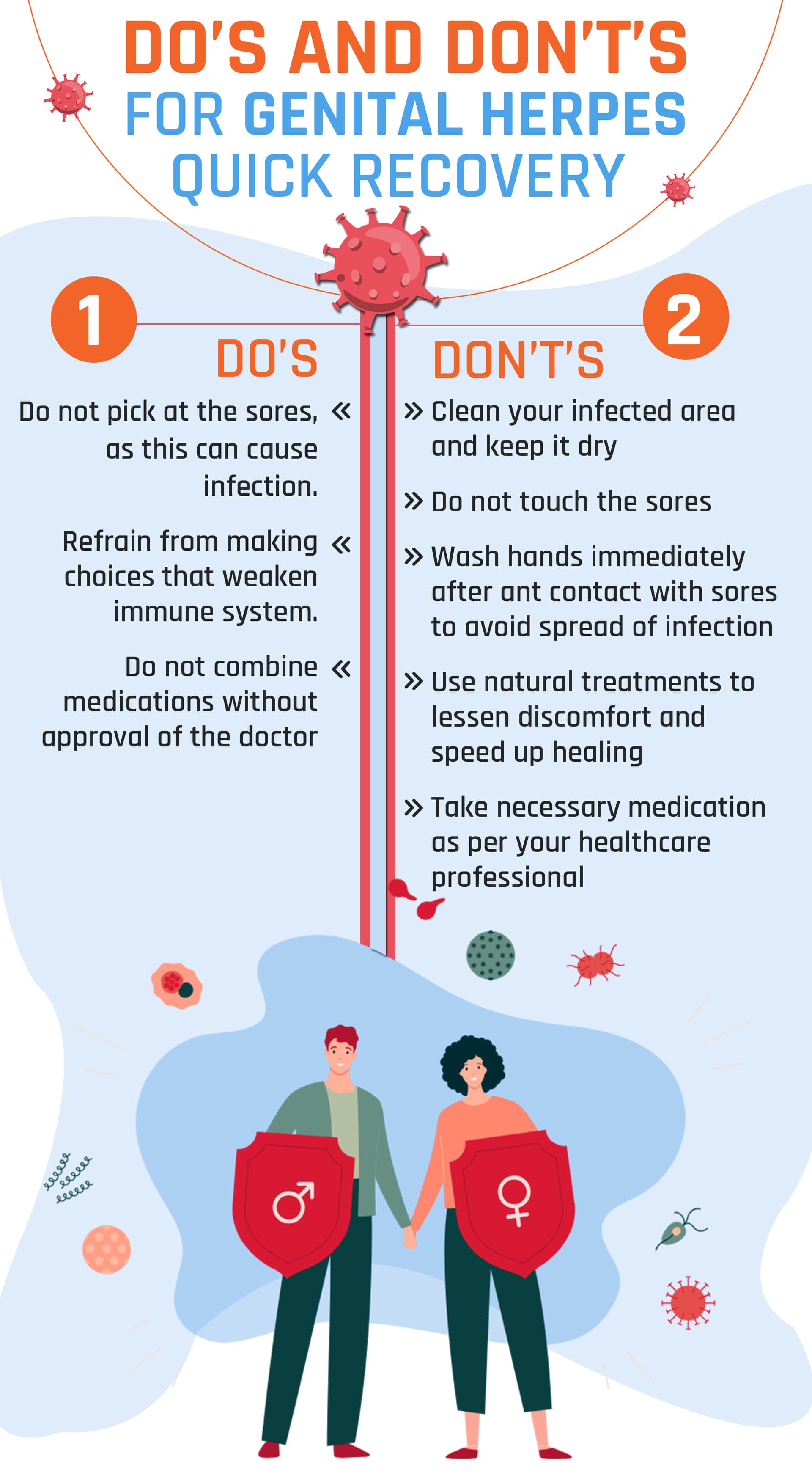
Monday to Friday 9:00 AM - 6:00 PM
Saturday to Sunday 10:00 AM - 2:00 PM
 Book Appointment
Book Appointment

Monday to Friday 9:00 AM - 6:00 PM
Saturday to Sunday 10:00 AM - 2:00 PM
 Book Appointment
Book Appointment

Genital herpes isn't similar to bacterial infections, which can be treated with antibiotics. This doesn't mean enduring herpes outbreaks for extended, uncomfortable periods. A genital herpes flare-up can interfere with social interactions, distract you at work, and cause significant irritation. On a positive note, mastering quick healing techniques for herpes sores could allow you to sidestep the most severe symptoms and swiftly resume your regular life.
Eliminating herpes sores rapidly and hastening the healing process is possible with correct methods. Let’s discuss the ways to avert herpes outbreaks and expedite their resolution when they do occur.
HSV can be transmitted even when patients exhibit no visible symptoms. You might contract the virus responsible for genital herpes and either never experience an outbreak or have one emerge years later. Although HSV-2's typical incubation period is 2-12 days, genital herpes may not manifest within this timeframe. It's feasible to carry the virus and be contagious without developing genital herpes sores.
Should you have genital herpes, the initial indicators of an outbreak often include:

In order to minimize the risk of a herpes outbreak, it's important to be aware of factors that may increase its likelihood. Being mindful of these can help you take preventive measures:
Being aware of these risk factors allows you to take steps to prevent an outbreak, or at least be better prepared for its occurrence.
Catching a genital herpes outbreak early is key to mitigating its severity. Although it's not always possible to prevent an outbreak – as they can sometimes occur seemingly without cause – early detection can help you avoid the worst symptoms. Common early signs include a tingling, burning, or itching sensation around the genital or buttocks area. You might also experience pain in your lower back, thighs, and knee joints. These symptoms typically precede the appearance of the first sores.
As you become more familiar with your condition, you'll start to recognize the specific ways in which the virus manifests in your body. This awareness allows you to take proactive steps to manage the outbreak more effectively.
The initial outbreak of genital herpes following infection typically spans between two and four weeks. Afterward, outbreaks can be expected around two to six times annually. These subsequent episodes usually last about a week, though the exact duration can vary by a few days, and they often become less frequent as time passes. Each individual's experience with these outbreaks can differ.
If you're experiencing an outbreak, here are methods to expedite the healing of herpes sores:
To expedite the healing process of herpes, consider taking an antiviral medication. Antivirals are effective in combating the herpes virus and can reduce the likelihood of acquiring or transmitting it. They can also shorten the duration of an initial outbreak by about two days and decrease the frequency of outbreaks by approximately one-third each year.
While there are no medications that completely cure herpes, they are beneficial in alleviating symptoms during the body's recovery period. Your doctor might suggest medications like acyclovir, famciclovir, or valacyclovir. These drugs inhibit the rapid replication of the virus once it has infected skin cells, triggering an outbreak. This delay allows the immune system more time to combat the infection before blisters develop on your genitals or mouth.
While it's impossible to completely prevent genital herpes outbreaks, there are measures you can take to reduce their frequency:
It's important to seek medical advice from a doctor or healthcare provider if you encounter any of the following situations:
If you suspect you have genital herpes for the first time, it's essential to consult a medical provider for an accurate diagnosis and appropriate treatment options. For recurring herpes outbreaks, medical attention may not always be necessary unless you experience complications, difficulty with healing, or are pregnant.
Although there's no cure for genital herpes, a healthcare professional can suggest over-the-counter and other treatments that may accelerate the healing of sores, decrease the frequency of outbreaks, and alleviate discomfort.
Dealing with genital herpes can feel embarrassing, but it's important to prioritize your comfort and well-being. A medical doctor will provide a judgment-free environment, focusing on giving you the proper care and helping you find relief.
You can consult with our experienced doctors at STI Clinic London and know how to heal herpes sores faster.
